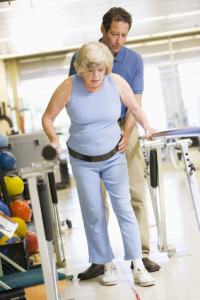Caring for Multiple Sclerosis with Physical Therapy
Multiple sclerosis had been known as being the most common inflammatory demyelinating disease of the Central Nervous System (CNS). It will be good to know that there is a team of practitioners that have experience with helping you with some of its risk factors. Clinically, MS is characterized by multiple and varying signs and symptoms and be unpredictable and fluctuating periods of remissions and exacerbations. The symptoms consisting of sensory losses with visual, temperature sensitivities and paresthesias will require specific medical attention. The symptoms consisting of motor dysfunction such as weakness in the extremities, difficulty with gait, coordination or balance can be helped by the education and skills of a physical therapist.
 A physical therapy evaluation and treatment strategy will assist in specific exercises for the weakness that develops by using functional manual skills that stimulate the central nervous system at the time of the movement pattern. They will work with gait training to evaluate for any equipment you may need for comfort and safety. They have been trained in detailed vestibular rehabilitation for balance and coordination issues that may come up during those fluctuating periods of exacerbation.
A physical therapy evaluation and treatment strategy will assist in specific exercises for the weakness that develops by using functional manual skills that stimulate the central nervous system at the time of the movement pattern. They will work with gait training to evaluate for any equipment you may need for comfort and safety. They have been trained in detailed vestibular rehabilitation for balance and coordination issues that may come up during those fluctuating periods of exacerbation.
Difficulties with speech or chewing and swallowing can occur if the cranial nerves are affected. The physical therapist has been trained in helping to free nerve pathways with fascial release techniques. Any urinary frequency, urinary urgency, incontinence, retention or hesitancy can be particularly trained by a therapist who specializes in visceral manipulation (working with the organs fascia) or pelvic floor techniques for muscle retraining.
 For the client with MS, treatment should take place in the coolest temperature setting possible. Physical therapy is initiated at an early stage to maintain joint range of motion within your pain tolerance and to monitor muscle strength until active exercises can be initiated. It is very important to provide you with active exercises that are at a level consistent with your muscle strength. The physical therapist can help you with all the precautions and functional movement patterns you need to know for your progression back to better health.
For the client with MS, treatment should take place in the coolest temperature setting possible. Physical therapy is initiated at an early stage to maintain joint range of motion within your pain tolerance and to monitor muscle strength until active exercises can be initiated. It is very important to provide you with active exercises that are at a level consistent with your muscle strength. The physical therapist can help you with all the precautions and functional movement patterns you need to know for your progression back to better health.

 relieve discomfort. Scar mobilization minimized soft-tissue restriction and allowed for normal breathing and nerve mobility. Postural exercise/strengthening helped increase blood flow and restore strength for activities of daily living (ADLs).
relieve discomfort. Scar mobilization minimized soft-tissue restriction and allowed for normal breathing and nerve mobility. Postural exercise/strengthening helped increase blood flow and restore strength for activities of daily living (ADLs).